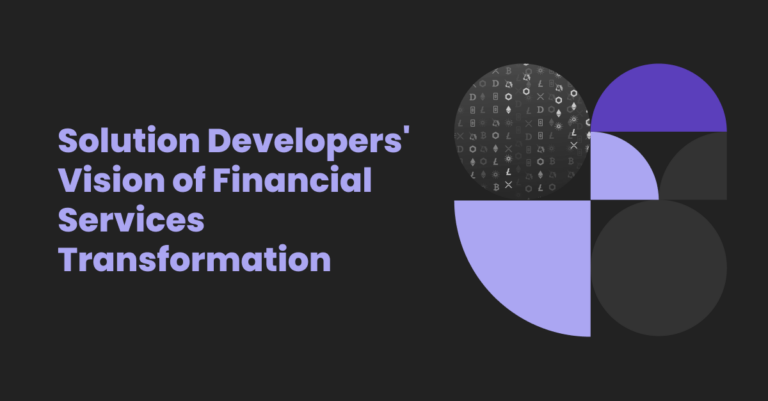With a projected market revenue of $80 billion in 2025, the significance of CRM in business cannot be emphasized enough. A CRM tool can drive up the profits of a business while sharply cutting down on the time and resources spent achieving them, leading to very efficient business practices. Although businesses are starting to see the undeniable value of a CRM tool. The challenging part is choosing a CRM that actually works successfully for your business and is within your budget.
With a plethora of advanced features, multiple rival vendors, detailed fee structures, and overwhelming information available online, it is a demanding task to shortlist a few suitable CRM tools. This lets alone decide the one you want for your enterprise. Add to that the fact that many business owners are not tech-savvy, and this decision gets even more daunting.
We’re here to break this down into manageable and easy-to-understand chunks for you. In this article, we offer a comprehensive guide on choosing the right custom CRM development services for your business and raise questions you must ask yourself before buying any CRM software. Before we delve into these, let’s first consider what CRM software does for a business.
What Is CRM?

Customer Management Relationship (CRM) has come to represent a set of strategies, software, and technologies that enable enterprises to obtain, maintain, and analyze customer data. This leads to information that can help the business improves its customer management, marketing, sales, or other focal areas to achieve higher revenues. A CRM typically offers features such as lead management, sales forecasting, intelligent analytics, call management, and interaction tracking.
To explain it simply, consider a smartphone. You can carry a watch, a calculator, a calendar, a notepad, a camera, a gaming console, a telephone directory, and a writing pad, among other things. Or, you can simply carry a small portable device that offers the functionality of all of the aforementioned and allows you to seamlessly integrate them with each other. The smartphone is essentially a CRM tool in this analogy – it saves resources and offers multiple features together.
Benefits of CRM Software for Business
When businesses have thrived and successfully managed their contacts for years without any advanced customer management tools or analytics, this question is valid when raised by those unsure of the benefits of a CRM tool: why do I need a CRM?
Following are some of the main benefits of using a CRM for business:
- This system can provide a far better knowledge of customers – including their personal information, preferences, transaction details, and interactions with your business.
- The above, in turn, leads to higher customer retention. By understanding the customers better, the system is able to keep them engaged with the products of your business that most interest them.
- Due to the automation and cross-platform integration this tool provides, there is enhanced productivity across many departments in the company.
- The marketing strategy can be designed accordingly, which can lead to higher customer revenues.
That being said, many might ask, why use a CRM at all when its individual features are offered in many other, simpler tools? The simple answer is that a CRM will provide all the necessary functionality in one place, saving you the resources spent to keep track of and integrate information on multiple platforms and software.
Criteria for Choosing a CRM System
The CRM selection process is extremely crucial for any business because only having the right CRM could afford you the advantages that such a system brings to businesses.
Be careful that you do not make any mistakes when getting a CRM for your business. There are many who believe that the higher the price, the better the quality. Then there are those who can afford costly options; hence, they aim for the most renowned vendors. Others, without much research, buy a full suite with features they would likely never fully utilize. This is why it is so incredibly important to make a very well-informed decision: it will save you from the arduous and expensive task of shifting to another CRM if the original plan fails to deliver desirable results.
Given below are some of the key criteria that provide guidance as to what to look for in a CRM.
-
- RequirementsWith every business having its own vision, goals, growth dynamics, and preferences, it is fair to say that a tool that might give excellent results for one business might not work well for another. This is why every business needs to clearly identify its requirements. This will save you from problems such as investing in solutions that offer far more than what you require or offer too little of what is actually your preference.This is arguably the most important criterion when considering how to choose a CRM for business.
- Key Features
 If you are absolutely clueless as to what to look for in a CRM, the following are some core features that any competitive CRM solution should ideally offer:
If you are absolutely clueless as to what to look for in a CRM, the following are some core features that any competitive CRM solution should ideally offer:
- Contact Management.
- Interaction Tracking.
- Lead Management.
- Sales Forecasting.
- Workflow Automation.
- Email Integration.
- Pipeline Management.
- Analytics/Reports.
- CustomizationThis feature is particularly important for businesses that have very unique or regularly changing requirements. When choosing a CRM, customization should also be kept in mind by business owners who plan to scale their business. The ability to introduce new features and modify existing ones ensures that the system is able to meet new requirements and is optimized for a particular business.However, you should know that in order to introduce any changes or innovations in your CRM system, you will require technical assistance.
- IntegrationAnother major feature that is often highlighted when discussing what to look for in a CRM is the ability to integrate the CRM software with other applications. This means that your CRM integrates well with the following:
- your website.
- accounting, sales, HR, and marketing software.
- your e-commerce platform, etc.
If this is not possible, it almost defeats the purpose of having a CRM; it’s not just another addition to your extensive set of tools.
- Deployment MethodOne highly-considered feature when it comes to how to choose a CRM is the way it is deployed: cloud or on-premise.When hosted on a cloud, the CRM is a Software-as-a-Service (SaaS), and no technical expertise or IT infrastructure is required for installing it. When deployed on-premise, the CRM is hosted at the physical location of the business. This gives more control over the data, which is stored internally but requires IT infrastructure and technical support.
- DemonstrationOne mistake that is very common among buyers during CRM selection is that they do not request a live demonstration or a test drive. Even after you are completely aware of all the features of the software, it is necessary to go through a live demonstration where an agent explains various features of the tool and answers any questions you may have. Afterward, you can test out the software with a free, limited trial to get a feel of it yourself.This is not an exhaustive list at all. Additionally, the ideal features to look for depend upon your particular needs. However, with this guide, you can have a knowledgeable beginning point on how to choose a CRM.
Leading CRM Systems
It is not an easy task to claim that a certain CRM system is outperforming the rest because different types of CRM tools are beneficial for different types of businesses – there is no single CRM system available in the market that will give exceptional results for any and all businesses. Nonetheless, based on the CRM selection criteria mentioned above, the following two custom CRM solutions have proven to be market leaders as of late.
Salesforce
This is considered to be the best CRM system overall. With its intuitive interface and a vast library of resources for training, it currently ranks as the number 1 CRM solution. It is an integrated platform that combines the data from sales, marketing, IT, and service teams, etc. This CRM is also highly scalable and flexible to cater to your wide-ranging requirements.
HubSpot
Even though HubSpot offers separate marketing, sales, service, and operations tools, it has a combined, integrated tool as well that uses all these tools together. This CRM provides all the key features mentioned earlier. HubSpot offers the option to start free or get a demonstration. Despite HubSpot offering a free version, it provides an array of useful features that normal free CRM tools do not.
Custom CRM Development
With a custom CRM solution, you can have a CRM built for you from scratch. This approach is recommended for those businesses that have highly complex requirements, or whose sales model does not closely match a regular business-to-business model. With such a solution, businesses do not have to wonder what the best CRM system is. Rather, a highly optimized solution is developed catering to each and every specialized requirement.
Although there are high creation, training, and maintenance costs when it comes to a custom CRM tool, it offers vastly better analytics than a vendor-specific solution, along with giving your business a competitive advantage. These reasons have led many companies to invest in a company CRM despite its high costs.
Must-Do’s Before Selecting a CRM

Once you’ve decided the criteria for the CRM you require and explored the software offered by various vendors, it is time to make a choice. However, before finalizing your CRM selection, make sure you follow through with this list to ensure you make a well-informed and calculated decision:
- Make an accurate assessment of the kind and extent of technical assistance you will require to deploy or install and maintain your CRM. Some tools can simply be installed on your own, and you can use them immediately – while others might have lengthy and complex installation procedures.
- Estimate the time and resources required to train – if necessary – your employees to enable them to easily use the tool. For instance, you might choose a less expensive CRM over a slightly costlier version. However, it might be possible that the resources you will need to spend to train your staff to efficiently use your chosen CRM cost a lot – seemingly invalidating your initial decision to save money.
- Carefully evaluate the security features offered by the CRM. This is extremely significant because customers are getting increasingly concerned about their data and its usage by businesses. Hence, you need to ensure that a tool that deals with a vast amount of customer data has features built into it to safeguard all data. Consider a CRM that comes with General Data Protection Regulation (GDPR) features.
- When choosing a CRM, make a total cost estimate for using the CRM. Many buyers simply consider the cost of the software or its subscription fee. They fail to realize that deploying the software, training your employees to use it, or integrating it with other tools might also require money. Also, look for any additional costs that you will need to pay for the product.
When considering these points, you will either become more confident in your choice or realize that you have made an oversight. In the latter case, fortunately, you can reconsider your decision and opt for the CRM tool most suitable for your business.
Conclusion
With a CRM tool installed, you can focus on creating innovative products and services instead of spending resources on activities that can quickly be organized, maintained, and streamlined for your business. Keep in mind that the best CRM software for your business is the one that meets most, if not all, of its requirements. After making your choice and before buying it, ensure that you are aware of the details, monetary and otherwise, regarding the setup, training, and technical support associated with your chosen tool.
Now that you’ve carefully read the detailed criteria of how to choose a CRM, you can now begin with consulting a CRM provider to discuss your requirements and get a quote.
















